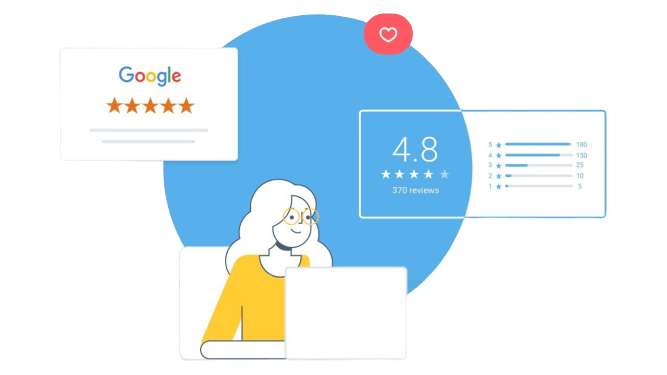Lead generation for lawyers can be a challenging concept and process. Lead generation may even seem like a foreign concept that’s just for “people in sales.”
But it’s absolutely critical for your law firm to create a reliable lead generation pipeline, in other words, a way for clients to easily find you and book a consultation with you. Lead generation, the process of finding new potential leads, is essential to your law firm’s business development strategy, and contributes to its cash flow, financial health, and business growth.
Thankfully, with the right strategy and tactics, legal lead generation can be a fruitful process, producing a steady flow of quality, reliable leads.
Let’s take a closer look at what strong lead generation processes should look like and the tools you can use to find success.
What is a lead?
The term “lead” refers to a potential client or prospect. How specific you get with defining a lead depends on your firm—it could be a prospective client, or it could simply be someone who might find information on your website useful. In any case, it should at least be someone who is interested in paying for your legal knowledge or services, and a person who has shown this interest by willingly sharing their contact information.
For law firms to be successful at attracting new clients, they must focus on developing high-quality lead generation processes to bring more visitors to their website. The goal is to convert these website visitors into new clients with engaging and persuasive content.
Of course, the process of lead generation and client acquisition can be complex and time-consuming. Yet in these difficult economic times, law firms must continue to search for new clients, so fine-tuning your lead generation processes is critical to your law firm’s continued success.
What is lead generation for law firms?

Lead generation for law firms is the process of attracting and nurturing potential clients, ultimately converting them into paying clients.
A key component of this is utilizing the “sales funnel” —a multi-step process of attracting and nurturing potential clients and ultimately converting them into paying legal clients. The main stages of a sales funnel are as follows:
- Awareness: The first step to converting a lead into a client is simply making them aware of your firm and your services. This is more difficult than it sounds—you’ll need to improve your search rankings and provide numerous ways for leads to discover your firm and arrive at your website, either organically or through paid advertisements.
- Interest: Once your lead is aware of your firm, you need to capture their interest. This means you must have something on your landing pages or website that serves as a hook for potential clients and keeps them interested in what you can offer them.
- Decision: You must get your leads to make a decision to seek more information or work with you. To do this, you will need to convince them how much they’ll benefit from your offering.
- Action: The “action” portion of a sales funnel is different for every type of business. For some businesses, it might be a sale. For a law firm, it might be a potential client submitting their contact information, scheduling a consultation or reaching out for more information about services.
The legal lead generation process
The legal lead generation space is highly competitive, so it is crucial for you to implement inbound digital marketing strategies that will help you cut through the noise.
Your goal should be developing a process in which your audience:
- Discovers your firm through one of your various marketing channels,
- Clicks on your call to action (CTA),
- Goes to your landing page,
- Enters their information, and
- Receives a follow-up message from you with useful information that will benefit them
How to generate leads for your law firm
Now that you understand what attorney lead generation is, here are a few strategies you must implement to generate more leads for your firm and maximize your lead generation success.
Have a strong law firm website

Your website is your most important tool for getting leads to convert into clients. Your website establishes your firm’s brand and tells potential clients who you are, what you do, and why they should pay for your services instead of one of your competitors.
These are some key ways to ensure you have a polished, effective law firm website:
- Professional design: Your website must look professional, be user-friendly, be optimized for search engines, and be compatible with both mobile and desktop devices.
- High-quality content: You should only use high-quality, high-resolution photos on your website. Any written content you have on your website should be client-centered, allowing you to showcase the benefits of using your firm’s services. Remember to include your law firm’s unique selling proposition.
- Personal: You should have content for the bio of every lawyer in your firm to help leads become more familiar with the actual people they will be working with. Lawyer bios and images also help increase potential clients’ trust in your firm and its lawyers.
- Calls-to-action: Include CTA buttons on each page of your website—but not too many.
There are lots of great tools out there to use for professional website design. If you’re looking for one built specifically for law firms, Clio has its own website builder. It includes built-in tools to help you connect with your clients, collect payments, and manage your cases.
Create a website in minutes with our simple legal website builder
Easy-to-edit templates, no coding required—get your website up and running in the time it takes to make a cup of coffee.
Use landing pages to capture client leads
Landing pages are an important digital marketing tool to use alongside your other digital advertising, social media marketing, and email marketing efforts.
They’re distinct from regular pages on your website. Landing pages are designed specifically for advertising campaigns, and to get people to take a particular action. They must have strong, convincing copy and compelling visuals. You may need to make tweaks to landing pages throughout your campaign to optimize them for maximum conversion opportunities.
Transform cold leads into warm leads with email marketing

Email marketing is another powerful lead generation tool that can provide you with high-quality leads.
The first step to any successful email marketing campaign is building an email list. To do this, you can offer a free newsletter that people can sign up to using their email address. You can also build a lead magnet, which is a type of asset (an ebook, guide, or webinar) that leads can download from your website—by submitting their email address to access files. If you use lead magnets, be sure to promote these assets via your marketing channels.
With an email list, you can target specific segments of your audience to create more personalized messaging and make sure you send the right message to the right people—at the right time. All messaging should focus on the benefits (not the features) of your services and the problems you can solve for potential clients.
There are a variety of tools available that can help you get the most out of your email marketing campaigns, including Mailchimp, Campaign Monitor, and Marketo. It’s best practice to track responses from recipients to collect more information from your clients.
Drive traffic to your landing pages with social media marketing
Social media is an incredible opportunity to market your services while building stronger relationships with your audience and engaging in direct communication with current or potential clients. You can purchase paid advertisements that will show up in people’s feeds, or you can use organic advertisements you post on your own page.
Any content you share on social media should be engaging and interesting, and should focus on visual appeal. Studies show social media posts with images or videos see much more engagement than simple text posts. Your content should include links that go directly to the landing page built specifically for the campaign you’re marketing so you can capture more leads.
You can run social media contests, conduct polls, host Q&A sessions, or simply engage in conversation. We strongly recommend using platforms like Facebook, Twitter, Instagram and LinkedIn.
Another great option is Google’s Local Services Ads. In short, Local Services Ads are pay-per-lead ads offered through Google that appear at the top of search engine results. They match prospective customers searching for a service with relevant businesses in the same area. Best of all, you only pay when a potential lead contacts you through the ad, resulting in higher quality leads and cases. And, with Google’s Local Services Ads for Clio, you can sign up for and manage a Local Services Ads account, set up and run ad campaigns, capture new leads, and measure campaign performance all within a single platform. Learn more here, or book a live demonstration with a Clio expert.
Have a solid content marketing strategy
Content marketing is one of the best tools you have in your lead generation arsenal—not only to get more interest from your leads, but also to enhance your search engine rankings.
Your content marketing campaigns can include blog posts, email newsletters, ebooks, videos, infographics, webinars, web content or downloadable guides or white papers—any kind of written or visual content related to your services that your leads will find interesting and useful.
We already talked about the concept of the lead magnet, in which you have a piece of content that can only be downloaded upon submission of contact information. This will help you capture leads. You can also include options to download each blog if the reader submits an email address.
All content should be professionally created and actually be practical and useful—content for content’s sake wastes your and your audience’s time.
To learn more about blogging and content best practices, check out our resources in our digital marketing hub.
What are some effective online platforms for lawyers to generate leads??
Lawyers can leverage platforms like LinkedIn for professional networking, Avvo for legal-specific queries, and Google My Business to enhance local visibility. Additionally, participating in legal forums and contributing to platforms like Quora can help establish authority and attract potential clients.
Increase brand awareness with display advertisements
Another great lead generation tool is pay-per-click advertisements (PPC) that show up in relevant Google searches and as ad displays on other websites. The idea behind pay-per-click ads is just as it sounds—you pay for each click on an advertisement. For PPC ads to be effective, you need to select the right keywords, organize the keywords into campaigns and ad groups, and have landing pages set up that capture the interest of your leads.
PPC advertising also allows you to engage in remarketing—a way to keep your firm at the top of your leads’ minds. There are a lot of reasons why people might not convert the first time they see your ad, but may be more interested if your ad pops up again.
We strongly recommend using Google Adwords to help you build a robust PPC advertising campaign that brings in leads.
Capture client leads through reviews and referrals

People are much more likely to work with law firms that have a strong reputation and are well reviewed by real clients online. Knowing this, it is important for you to leverage the power of online reviews as part of your lead generation processes.
You should claim all free profiles on review sites like Yelp, Nextdoor, FindLaw, Justia, Nolo, and Avvo. Monitor these review sites, respond when appropriate, and use real client testimonials as part of your marketing endeavors.
Learn more about online reputation management for lawyers.
Use pay-per-lead (PPL) services
There are various attorney pay-per-lead services geared specifically toward law firms to help you attract more leads, including sites like Lawyers.com, FindLaw, Nolo, and Avvo. This can be a particularly good option for smaller firms or solo practices that have a limited capacity for new clients.
It’s important to note you do not always have control over the quality of your leads, and you can’t necessarily rely on the volume of the leads coming in. You should also make sure your PPL ads align with industry ethics standards.
Offer free initial consultations to generate leads for your firm
This tactic isn’t always feasible for every firm. But if it is indeed possible for your firm to offer free consultations, you may find it beneficial as it can help encourage leads to take action and connect with you. It’s a great way to get a new client in the door and meet with them one-on-one—in person or virtually—which makes converting the lead into a client a much more manageable task.
You should keep in mind that there will be a time investment as part of this promise. You might find it worthwhile to hire someone to conduct those initial consultations if you do not have the time to take them on yourself.
Alternatively, when you have much of your everyday tasks like the client intake processes automated with practice management software, like Clio Grow, there is more free time to conduct these types of consultations.
Conclusion
To find lasting success in a crowded legal market, attorneys need to stay on top of their lead generation processes, constantly tweaking and updating them to get the best results possible.
Your lead generation and marketing efforts should have a consistent, integrated message. No matter how your leads find you, the personality of your brand and the main messages they receive should feel consistent and true to your firm.
Setting up an intake system, like the one offered with the Clio Suite, is a vital part of securing those qualified leads. Firms should strive to give the best client experience while generating quality leads.
Is it beneficial for lawyers to host webinars for lead generation?
Hosting webinars can be highly beneficial for lawyers as it allows them to engage directly with potential clients, showcase their expertise, and address specific legal concerns. Webinars also provide an opportunity to capture contact information from attendees, which can be used for follow-up and lead nurturing.
What role does SEO play in lead generation for lawyers?
SEO is crucial for lawyers as it helps improve their website’s visibility on search engines. By optimizing for relevant keywords, lawyers can attract more organic traffic to their site, increasing the chances of converting visitors into leads. Local SEO is particularly important for targeting clients in specific geographic areas.
How can networking events contribute to lead generation for lawyers?
Networking events offer lawyers the chance to meet potential clients and other professionals face-to-face. By building relationships and exchanging contact information, lawyers can expand their network and increase referrals, which can lead to new client opportunities.

